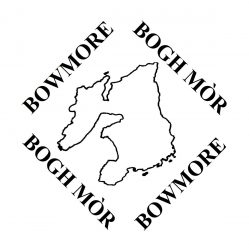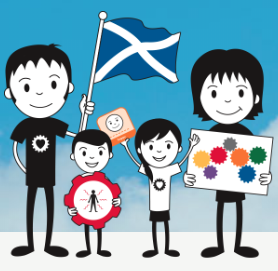At Bowmore Primary School, it is important to use that our children have the knowledge and skills required to be good digital citizens.
The internet and digital devices offer a huge range of positive experiences for children and digital devices surround children from a very young age. It is important that we build positive and open relationships with our children and that we take an active interest in what they are doing online. Below are some online safety guides which will offer you some support.
Internet-Matters-Guide-Online-safety-for-parents-of-children-0-5-years-old
Internet-Matters-Guide-Online-safety-for-parents-of-children-6-10-years-old

The following website have a huge range of resources to support parents and carers:
• Parentzone: Digital parenting magazine (free copies for schools and some organisations working with children, young people and families):
• Childnet screentime guidance
• Parent reviews of apps, games, films, books etc
• Internet Matters website – Helping parents keep their children safe online
• CEOP resources for parents:
• Mencap guide for parents about learning disability, autism and internet safety:
• UK Safer Internet Centre (UKSIC) leaflets for foster carers and adoptive parents:


 We are so excited to have been successful at securing The Digital Xtra Grant. The money received will be purchasing robotics equipment for Islay and Jura schools. Through teaching robotics, our children will learn to create algorithms, apply their maths skills, problem solve, use their intiative, collaborate, tinker with new and fun equipment and much more!
We are so excited to have been successful at securing The Digital Xtra Grant. The money received will be purchasing robotics equipment for Islay and Jura schools. Through teaching robotics, our children will learn to create algorithms, apply their maths skills, problem solve, use their intiative, collaborate, tinker with new and fun equipment and much more!


















 There are many skills that children are required to have developed before they begin to write. Fine and gross motor skills are very important and have a huge impact on a child’s ability to write. In Bowmore Primary School we follow The Highland Literacy guidelines for introducing handwriting. We feel that it is very important that children are physically ready to write so we spend term 1 of primary 1 developing the necessary fine and gross motor skills.
There are many skills that children are required to have developed before they begin to write. Fine and gross motor skills are very important and have a huge impact on a child’s ability to write. In Bowmore Primary School we follow The Highland Literacy guidelines for introducing handwriting. We feel that it is very important that children are physically ready to write so we spend term 1 of primary 1 developing the necessary fine and gross motor skills.


